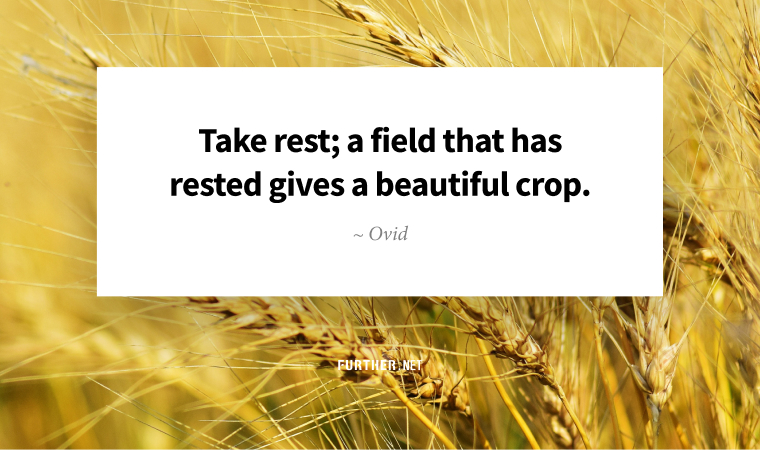
Here’s a fun challenge for us Type As: let’s set a goal of getting better at resting.
Otherwise, we may never give ourselves a break. In our busyness or bust culture, we’re taught from childhood that constantly striving is not only preferable but it’s also non-negotiable.
And so, we’re a generation of multi-taskers who vow not to rest until we’re dead. That’s literal: full-throttle living leads to stress, anxiety, and burnout. You know, the things that contribute to the leading causes of premature death, like heart disease and compromised immune systems.
Ironically, part of why we demonize rest is that being in a “turned off” state might feel too close to being dead — and we humans, especially in the West, fear that “eternal rest.”
So, let’s not freak ourselves out. Think of rest not as a final state but rather as a starting point for greater creativity, productivity, and personal growth.
A Rest Reset
Falling into the trap of continual doing is easier now more than ever, thanks to our 24/7 culture.
We live in a time marked by speed, hyper-productivity, and the obsession with being successful. However, when you adhere to these schemes, whether consciously or not, you subject yourself to stress. You feel under pressure and have the idea that no matter how much you do, it’ll never be enough. Therefore, it’s easy to feel guilty for resting.
Left unchecked, feelings of inadequacy and imposter syndrome can lead to next-level workaholism, productivity dysmorphia: the inability to recognize our own successes.
If that last sentence felt familiar, consider checking your associations with rest. Do you follow rules like “don’t waste time,” which equate taking a break with laziness or failure? Do you overwork to avoid uncomfortable feelings? Have unhealthy obsessions like perfectionism overtaken your life?
If that resonates, try seeing rest as the yin to work’s yang. Your most fruitful, effective life lies in the balance.
Rest in Piece
While sleep is an important form of rest, it’s not the only kind. Enjoy bite-sized respites by sitting quietly, gazing out a window, listening to music, or doing a puzzle — however you chillax best. Meditation is another great way to give your central nervous system a break: research shows your brain goes into an alpha/theta wave state that’s two to five times more restful than sleep.
By doing “nothing,” you’re actively refuting the fallacy that rest isn’t productive.
It’s been repeatedly proven that when you make responsible use of your freedom, you’ll achieve the best results. In other words, the ideal is to act autonomously and not due to the conditioning of your fears or prejudices.
In other words, give your hang-up about relaxing a rest. That will give your body a chance to do essential work: regeneration and rejuvenation.
Why Do You Feel Guilty About Resting? (Exploring Your Mind)
